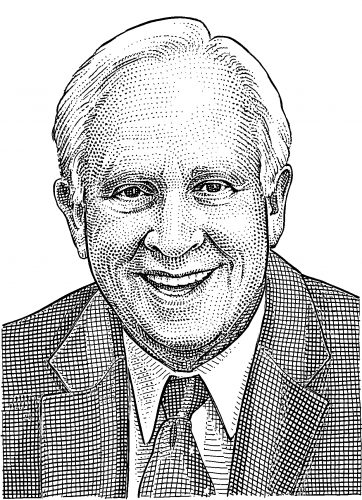Mr. T Explains Elevator Pitches and Four Ways to Prepare for a Promotion
TCU’s career guru gives pointers on how to grab the next rung on the career ladder.
Mr. T Explains Elevator Pitches and Four Ways to Prepare for a Promotion
TCU’s career guru gives pointers on how to grab the next rung on the career ladder.
One of the top things that alumni ask me about is how to get a promotion. When should I get one? How do I prepare for one? How do I create a promotion opportunity? Do I ask for one or let my work speak for itself? Can I demand a promotion? Do I really want one?

Getty Images © akindo
Although almost everyone wants a promotion, the first question should be: Why do I want a promotion? The answer might be: I want more money. I want more responsibility. I want to learn more. I want to contribute in a different area. I want to get out from under a bad boss. I want to get away from the company. Each reason requires a different strategy.
Promotions are like moves on a chessboard. They require foresight and deliberate actions. They also take self-confidence and courage.
Here are four things to do to prepare for a promotion.
Look for opportunities to go above and beyond your routine job. That might mean volunteering for a team project, taking on a research assignment or working in the community. In other words, 95 percent of the workforce does no more than what is required of them. Don’t be like them.
Increase your skill set. Formal education doesn’t end when you graduate from school. Ask your boss what you can add to your toolbox to make his/her job better. Many companies offer training programs for various skills — explore those or browse the internet for training that will make you a more valuable employee.
Prepare to promote yourself at any time. Keep track of your accomplishments and contributions to the organization. Use a journal, an updated résumé or just a note card. Write things down as you go, daily if necessary.
Check your attitude. People see it every day and it becomes your brand. Channel traits such as positivity, happiness and cooperation. Don’t gossip. Instead, publicly praise and acknowledge people’s contributions. Provide assistance when asked.
Your promotion strategy starts now.
Ask Mr. T

John Thompson, aka Mr. T
Q. I have heard about elevator pitches since my days at TCU. I never developed one because I didn’t think I needed it. Now I am told not only should I have one for me, but for my company, too. Why is this necessary, and what should the pitch include?
A. Elevator speeches or pitches were made famous in the 1988 movie Working Girl. Thirty years later, we are still using them, and companies also are using them for employees to promote products and services. They are so prevalent that universities with strong entrepreneurial programs, such as your alma mater, have elevator-pitch competitions. However, for personal use, they are still not universally embraced because many people are not comfortable with giving a canned description of themselves.
A pitch should be 30 to 60 seconds long. Use it to find a new job or get a promotion or at a networking event to introduce yourself. The point is to tell who you are and why you should be hired or promoted.
A good pitch will help you overcome a lack of confidence or focus and any inability to articulate what you know. To accomplish this, the content of your pitch will include: who you are, why you do what you do, the impact you make on people and the things that make you different from other people.
Example: “I’m Mr. T. I am a career coach because I love helping people find what they are best at so they can make their lives better. I am really good at helping people see where they can make their maximum contribution to an organization. I know your organization will be better off when you hire the people I know. Let’s talk.”
The pitch isn’t useful if you don’t come across as credible and likable. In addition, you have to practice your pitch so your delivery is natural and conversational. Always show confidence and passion for what you are saying. Eye contact is essential for credibility.
Send me your pitch and let’s talk about it.
Send your career questions to tcumagazine@tcu.edu
John Thompson is executive director of TCU’s Center for Career and Professional Development. For more information about careers, visit careers.tcu.edu

Your comments are welcome
1 Comment
Great article! When i worked for GE we were always advised to have our elevator pitches ready at all sales
And corporate meetings.
Related reading:
Alumni
Avoid common résumé mistakes
In a new installment of his Career Advice column, Mr. T. explains how to get hired with a stellar résumé.
Alumni
Gearing up the Job Search
Mr. T asks in his career column, is it time to move on?
Alumni
Networking Tips and Being a Good Listener
To be a leader, you have to ramp up your listening skills.